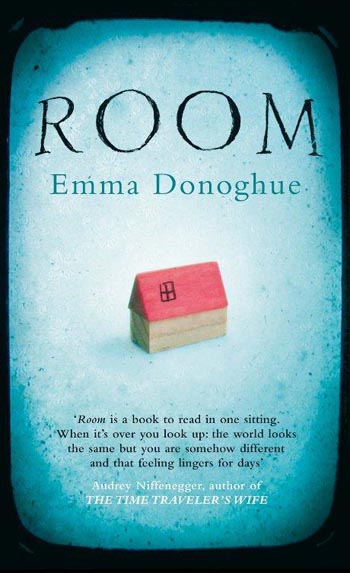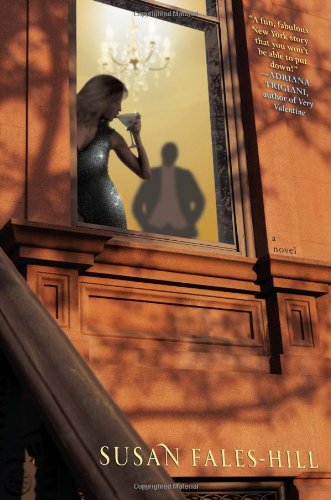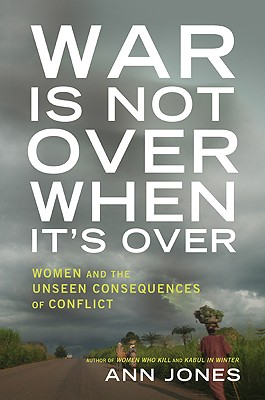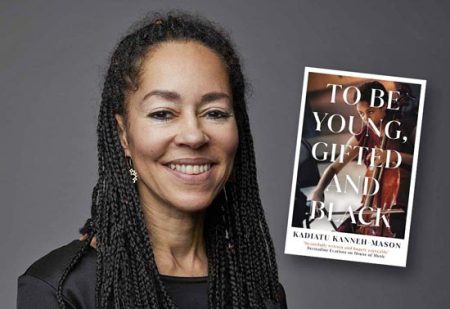Book Bag: Away from a Wicked Winter
 Book Reviews By Sharon Shervington
Book Reviews By Sharon Shervington
Room
Written by Emma Donoghue
For some years now Emma Donoghue has been one of the world’s most prolific and daring authors, mixing historical and contemporary fiction and nonfiction. Room, which was short-listed for the Man Booker Prize and has spent many weeks on The New York Times Bestseller List, may be her most unusual, and most mainstream, effort.
It is told from the point of view of five-year-old Jack, who has been confined since birth with his mother; she, in turn, was kidnapped by the psychopath who became Jack’s father — something that is unknown to the boy. In writing the novel, Ms. Donoghue was motivated by a seeming rash of similar cases in the last few years, all of them, she has said, more severe and horrific than what is portrayed in Room.
The book presents a portrait of a boy in extraordinarily difficult
circumstances but who has a mother who manages to protect him and give
him structure, and who plays to strengths that will allow for survival
and perhaps even the ability to thrive should the pair escape from the
11×11-foot lead-lined soundproof garden shed where they have been held
for so long. This is a story about confinement that is part thriller,
part literary novel, and that is also about the possibility of
redemption and ingenuity in the face of true evil.
The last year has been extraordinary for Ms. Donoghue, who also
published Inseparable in 2010 (Knopf; $27.95; 271 pages), a compelling
work of scholarship about the little-known tradition of love between
women in Western literature spanning authors from Chaucer to Dickens to
Shakespeare and many more.
Room; Emma Donoghue, author; Little, Brown; $24.99; 321 pages
 One Flight Up
One Flight Up
Written by Susan Fales
Much more than a flight of fancy, One Flight Up is a seriously quirky
ode to friendship. Imagine Gossip Girl or Anna Godberson’s Luxe series
with really great and hysterically funny dialogue, a fully diverse range
of grownup characters and a setting chock-full of the juicy details
that everyone wants to hear from New York City – to the protagonists of
this novel, and to so many others, the center of the universe.
Pitch-perfect details of a nasty divorce, a top-ranked private school,
the corridors of power and masters of the universe, and, most of all,
the “Boxed Lunch with Ballerinas” event at Lincoln Center, sucked me in,
reminding me that there are perfectly acceptable ways to escape winter
for a few hours and not feel guilty about it.
In truth, I eagerly anticipated this novel, since I have followed the
author’s career for years. She is Susan Fales-Hill, an award-winning
television writer and producer, who worked on shows such as The Cosby
Show, and who is also the biracial daughter of Josephine Premice, a
brilliant actress working in a milieu that did not always appreciate her
talents.
Ms. Fales-Hill chronicles her mother’s story in the bittersweet Always
Wear Joy, a must-read for anyone who wants to go below the surface of
the issue of race in America in the 20th and 21st centuries. Ms.
Fales-Hill, with characters that are vastly multidimensional, injects
freshness and sangfroid into a sometimes trite and even humdrum fiction
subgenre.
One Flight Up; Susan Fales-Hill, author; Atria; $25; 355 pages
 War Is Not Over When It’s Over: Women Speak Out from the Ruins of War
War Is Not Over When It’s Over: Women Speak Out from the Ruins of War
Written by Ann Jones
Violence, particularly violence in families, has been the overarching
theme of Ann Jones’s work. The author of classic works such as Women Who
Kill and Next Time She’ll Be Dead: Battering and How to Stop It, her
focus has been mostly events in the United States, but in her most
recently work she has switched to a more international perspective.
In her new book, War Is Not Over When It’s Over, she makes the link
between violence in the home and the violence of war. In six chapters
set in Ivory Coast; Liberia; Sierra Leone; Democratic Republic of Congo;
Burma, and among Iraqi refugees in Jordan, Syria and Lebanon, women
were given good-quality point-and-shoot cameras and asked to document
their lives and later to present the work they had done. Their work is
the centerpiece of this book.
This is Ms. Jones’s most personal work. She writes about the Great War
“in which my father served with uncommon distinction and from which he
returned a hero, irrevocably changed, subject to nightmares and sudden
rages and drunken assaults upon innocent furniture and my mother and me,
and tearful reconciliations we were not permitted to reject.”
She argues that women, through loss, are not only the first victims of
war, but also the last because of everything from the loss of their
homes to the return of loved ones who have become strangers. As such,
she explains, women must be included in the negotiations and transitions
that are an inevitable result of conflict.
War Is Not Over When It’s Over: Women Speak Out from the Ruins of War; Ann Jones, author; Metropolitan Books; $25; 274 pages








